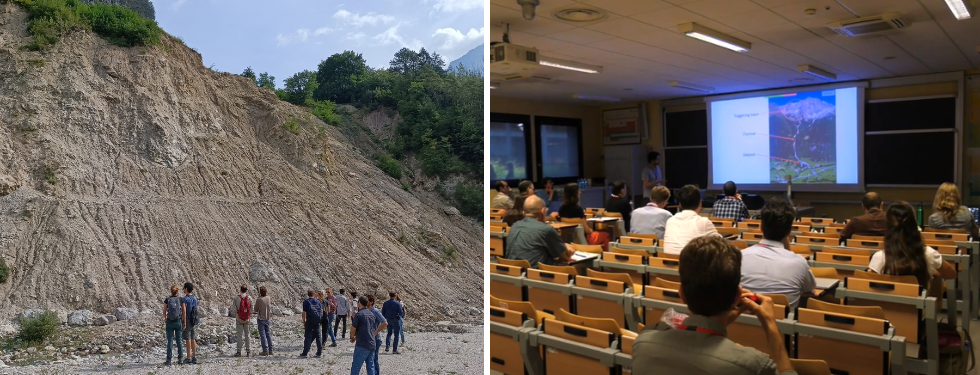Cascading hydrogeomorphic processes: a research topic which needs collaboration

Compound and cascade hydrogeomorphic hazards are complex processes: they interact with each other in a sort of chain effect which can exacerbate the associated risks. Furthermore, these cascading processes will very likely be aggravated due to climate and environmental changes.
A deeper understanding of these processes is limited by the fact that experience is often scattered across different disciplines (geomorphology, geology, hydrology), determining several research gaps.
Starting from this awareness, the Department of Geoscience of the University of Padova (UNIPD) and the University of Lausanne (UNIL) have been moving forward a joint collaboration which aims to identify the current gaps in knowledge regarding compound and cascade hydrogeomorphic hazards and risks. The collaboration is part of the strategic partnership between the University of Padua and the University of Lausanne (Switzerland).
In this framework from 13 to 16 September 2022 the Department of Geosciences hosted an event that was articulated in different initiatives, such as a seminar open to the public, a field trip among Belluno Dolomites, and a session of workshops. The first part of the field trip has been a precious occasion to watch a typical cascading effect on an unstable slope in Perarolo di Cadore (BL), while in the second part of the day the researchers went to San Lucano Valle (BL) where the effects of Vaia storm are still evident.
The goal of this collaboration is to boost and encourage the exchange of ideas, cooperation in research, and the crossing of disciplinary boundaries, bringing together academics (early-stage researchers and senior scientists) as well as practitioners and stakeholders.
“The main idea was to bring together scientists working in different domains, mainly looking at mass movement processes such as landslides, debris flows but also fluvial geomorphologists and scientists whose research focus is on climate”, said Virginia Ruiz-Villanueva, Assistant Professor of the Faculty of Geosciences and Environment of the University of Lausanne and principal investigator of this project for UNIL.
“The seminar and workshop on cascading effects are important because it’s dealing with research gaps in the understanding of the mechanisms leading to this cascading processes”, added Filippo Catani, Full Professor of the Department of Geosciences of the University of Padova and principal investigator of this project for UNPD.
The chains of effects typical of cascading processes “are studied by different scientists that usually look only at their single part of the process and this is why it is important for us to be able to work together”, Prof. Catani said.
“I am very happy of the output of this joint seminar. I think it created a very nice network not only between UNIL and UNIPD but also with other scientists. I’m sure that in the next months and in the next years this network will keep doing things together”, ended Nicola Surian, Full Professor of the Department of Geosciences of the University of Padova and member of the organizing committee of the joint seminar.





